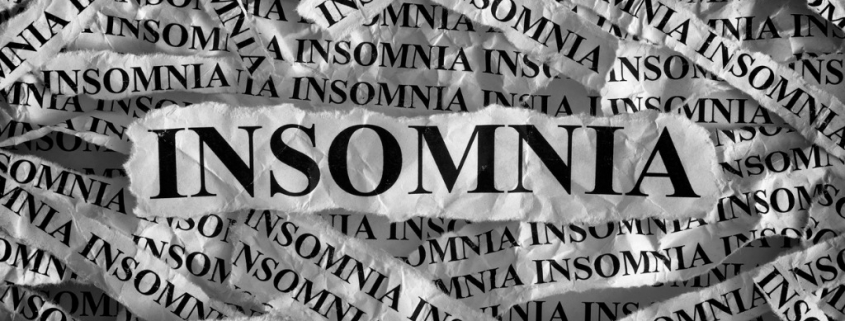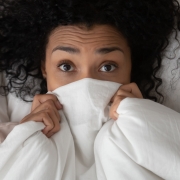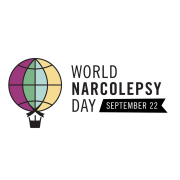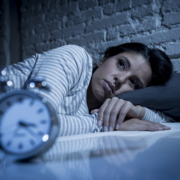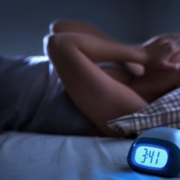INSOMNIA -Why Can’t I Sleep?
INSOMNIA-Why can’t I sleep?
Insomnia is a problem for many during normal times, but factor in a pandemic and global unrest and it has become much more widespread. Insomnia is a sleep disorder where a person has trouble falling asleep, staying asleep and/or they wake up too early in the morning. Insomnia can drain your energy level and mood, but also negatively impact your health, work performance and quality of life. How much sleep you need varies from person to person, but most adults need seven to eight hours a night.
Insomnia is characterized based on its duration. Acute Insomnia typically lasts short-term while Chronic Insomnia can last a long time.
Acute Insomnia
Lasts from one night to a few weeks and can come and go. It often happens due to life’s circumstances (Coronosomnia) or when you can’t fall asleep the night before an exam or after receiving stressful or bad news. Many people experience short term insomnia and it tends to resolve without any major treatment.
Chronic Insomnia
Happens at least 3 nights a week for 3 months or more. It can have many causes. Changes in the environment, unhealthy sleep habits, shift work, certain medications and medical disorders can lead to a long-term pattern of sleep deprivation.
Insomnia Symptoms may Include:
- Difficulty falling asleep at night
- Waking up during the night
- Waking up too early
- Not feeling well-rested after a night’s sleep
- Daytime tiredness or sleepiness
- Irritability, depression or anxiety
- Difficulty paying attention, focusing on tasks or remembering
- Increased errors or accidents
- Ongoing worries about sleep
Common Causes of Insomnia Include:
- Stress-Concerns about work, school, health, finances or family can keep your mind active at night, making it difficult to sleep. Stressful life events or trauma also may lead to insomnia.
- Travel or work schedule-Your circadian rhythms act as an internal clock, guiding such things as your sleep-wake cycle, metabolism and body temperature. Disrupting your body’s circadian rhythms can lead to insomnia. Causes include jet lag, working a late or early shift, or frequently changing shifts.
- Poor sleep habits-Poor sleep habits include an irregular bedtime schedule, naps, stimulating activities before bed, an uncomfortable sleep environment, and using your bed for work, eating or watching TV. Computers, TVs, video games, smartphones or other screens just before bed can interfere with your sleep cycle.
- Eating too much late in the evening-Having a light snack before bedtime is OK, but eating too much may cause you to feel physically uncomfortable. Many people also experience heartburn which may keep you awake.
- Mental health issues–Anxiety disorders may disrupt your sleep. Insomnia often occurs with other mental health disorders as well.
- Medications-Many prescription drugs can interfere with sleep, such as certain antidepressants and medications for asthma or blood pressure. Many over-the-counter medications such as some allergy and cold medications, and weight-loss products can contain caffeine and other stimulants that can disrupt sleep.
- Medical conditions- Examples of conditions linked with insomnia include chronic pain, cancer, diabetes, heart disease, asthma, gastroesophageal reflux disease (GERD), overactive thyroid, Parkinson’s disease and Alzheimer’s disease.
- Sleep-related disorders–Sleep apnea causes you to stop breathing periodically throughout the night, interrupting your sleep. Restless legs syndrome causes unpleasant sensations in your legs and an almost irresistible desire to move them, which may prevent you from falling asleep.
- Caffeine, nicotine and alcohol- Coffee, tea, cola and other caffeinated drinks are stimulants. Drinking them in the late afternoon or evening can keep you from falling asleep at night. Nicotine in tobacco products is another stimulant that can interfere with sleep. Alcohol may help you fall asleep, but it prevents deeper stages of sleep and often causes awakening in the middle of the night.
- Changes in sleep patterns- With age, your internal clock often advances, so you get tired earlier in the evening and wake up earlier in the morning. But older people generally still need the same amount of sleep as younger people do.
- Changes in health- Chronic pain from conditions such as arthritis or back problems, can interfere with sleep. Issues that increase the need to urinate during the night, such as prostate or bladder problems, can disrupt sleep. Sleep apnea and restless legs syndrome become more common with age.
If you are experiencing insomnia symptoms you should speak to your doctor or call Comprehensive Sleep Care Center at 703-214-0318 to see one of our sleep medicine specialists. We are now offering TeleMedicine visits to new and returning patients. Comprehensive Sleep Care Center offers expert diagnosis, treatment, and care for sleep disorders with the goal of providing a better night’s sleep and a better day ahead.

